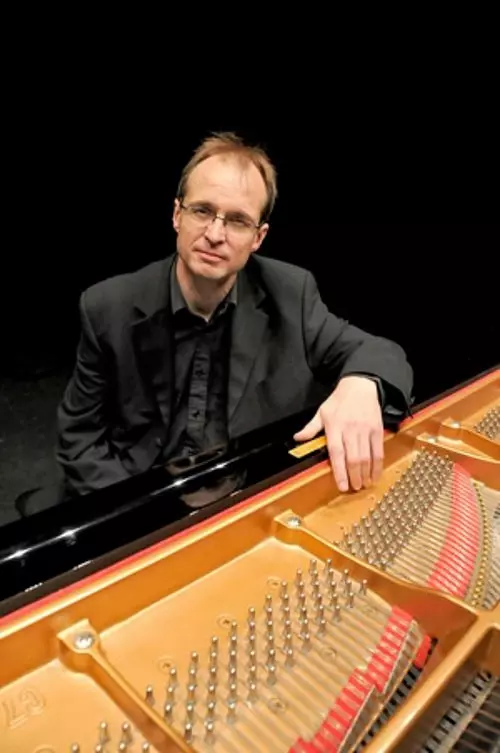Benjamin Frith
Benjamin Frith was encouraged by his teacher, Dame Fanny Waterman, to pursue a musical career after winning the Dudley National Concerto Competition aged fourteen. Since then, he has been a first prizewinner in the Rubinstein Piano Masters Competition where he was also awarded the special prize for chamber music, and was awarded top prize in the Busoni International Piano Competition.
Having achieved rave reviews from his American and Edinburgh Festival debuts, Frith established himself as an international concert artist. He has given recitals and concerto performances throughout Europe, Northern America, India, Kazakhstan and the Far East. He has appeared with many of the world's finest orchestras including the Berlin Symphony, Israel Philharmonic, Warsaw Philharmonic, Halle, the BBC orchestras, C.B.S.O, Northern Sinfonia, Royal Philharmonic and with such conductors as Zubin Mehta, Antoni Wit, Vasary, Skrowaczewski, Bamert, Atzmon, Noseda and Sir Mark Elder.
His exciting and diverse repertoire ranges from Scarlatti to James Macmillan and includes over fifty concertos. Much praise has been bestowed on Frith’s recordings. Piano Concertos numbers five and six by John Field reached the top of the classical charts and his five disc cycle of Mendelssohn piano works received the Penguin CD Guide Rosette Award. His disc of Schumann's Davidsbundlertanze was chosen as the top recommendation on the Radio 3 programme "Building a Library” and his acclaimed recording of Beethoven’s Diabelli Variations has now been reissued on the Resonance label. Richard Osbourne, critic of Gramophone, commented that "…that there has not been a finer Diabelli on record by a young pianist since the classic 1968 Phillips recording by the twenty eight year old Stephen Kovacevich."
Frith's enjoyment of chamber music has been fulfilled through his performances and recordings as pianist in the Gould Piano Trio plus the formation of his own Piano Quartet. His interest in the romantic English repertoire has produced fine accounts of Stanford’s trios and a reconstructed piano quartet in C minor together with works by Ireland, Bridge, Scott and Bax – nominated for a Gramophone award.

